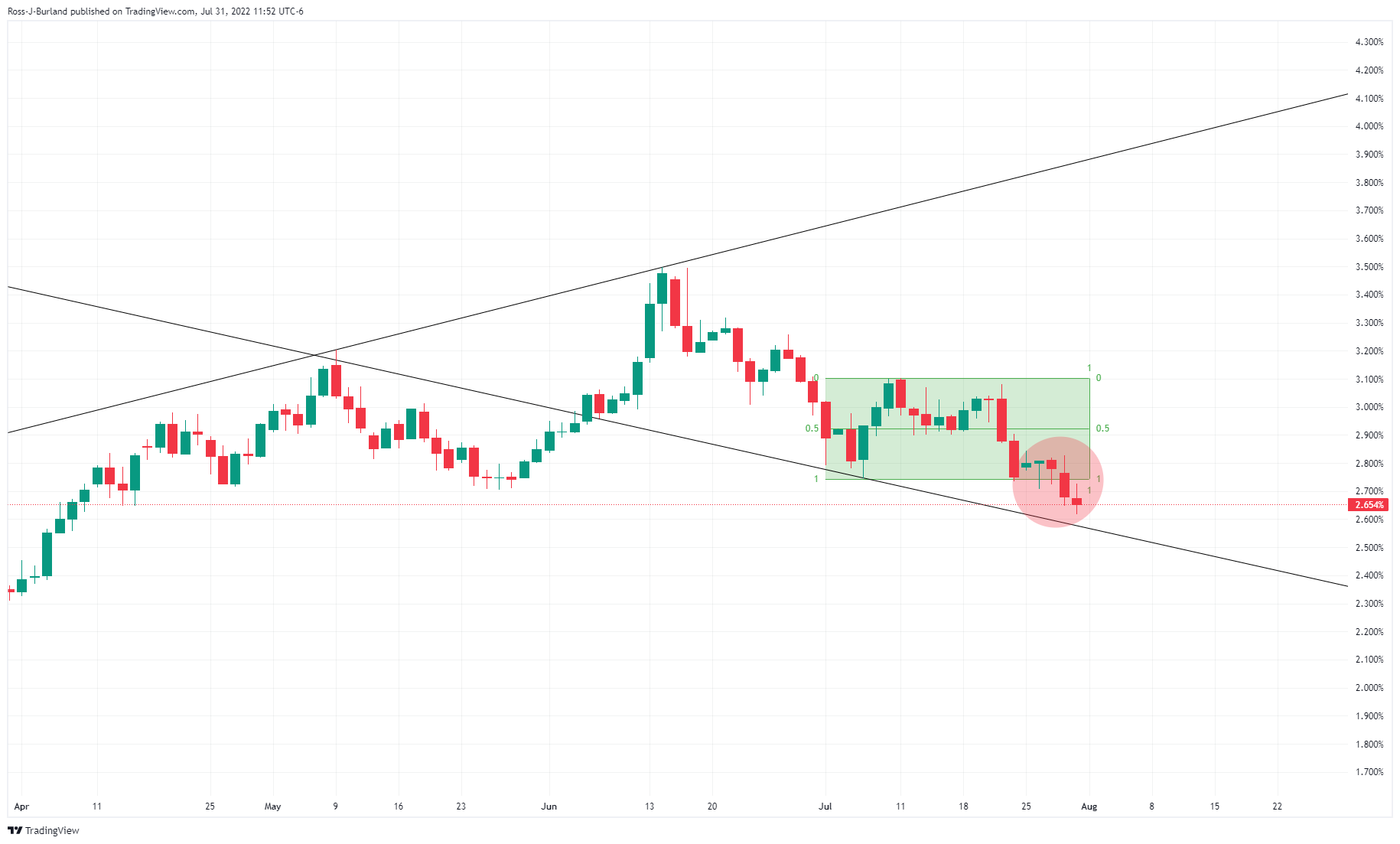- Analytics
- News and Tools
- Market News
- USD/JPY slides in the Tokyo open, eyes turning to US labour market
USD/JPY slides in the Tokyo open, eyes turning to US labour market
- USD/JPY is under pressure in the Tokyo open.
- Bears breaking down the 133 doors to start the week in control.
USD/JPY has been as low as 132.81, falling from a high of 133.55 as bears seek to take the pair below the 133 figure at the start of the week while the Nikkei is trapped in a narrow opening range so far. The US dollar, meanwhile, is trading between a low of 105.78 and 106.025 as per the DXY, also pressured vs. a basket of currencies and weighing on USD/JPY.
The US dollar has been pushed and pulled into and post the Federal Reserve following when the central bank hiked rates by 75bp at its July meeting, taking the policy target range to 2.25%-2.50%. While Fed Chair Powell indicated that there remains significant additional tightening in the pipeline as the Fed remains focused on bringing down inflation, there was a dovish tilt to the meeting that pressured the US dollar and yields:

(10-year yields moving lower on the daily chart)
NFP in focus
This leaves the focus on US data. Since the meeting, growth numbers showed that the US economy contracted in Q2 for the second straight quarter, which is a textbook definition of a recession. Core PCE data for June and ECI data for Q2 showed price and wage inflation remain elevated and are a reminder that the Fed still has much to do.
For the week ahead, the main focus now will be this week's critical Nonfarm Payrolls jobs data. US employment likely continued to advance firmly in July, analysts at TD Securities said, but at a more moderate pace after four consecutive job gains at just below 400k in March-June. ''High-frequency data, including Homebase, still point to above-trend job creation. We also look for the UE rate to stay at 3.6% for a fifth straight month, and for wage growth to remain steady at 0.3% MoM (4.9% YoY).''
© 2000-2026. All rights reserved.
This site is managed by Teletrade D.J. LLC 2351 LLC 2022 (Euro House, Richmond Hill Road, Kingstown, VC0100, St. Vincent and the Grenadines).
The information on this website is for informational purposes only and does not constitute any investment advice.
The company does not serve or provide services to customers who are residents of the US, Canada, Iran, The Democratic People's Republic of Korea, Yemen and FATF blacklisted countries.
Making transactions on financial markets with marginal financial instruments opens up wide possibilities and allows investors who are willing to take risks to earn high profits, carrying a potentially high risk of losses at the same time. Therefore you should responsibly approach the issue of choosing the appropriate investment strategy, taking the available resources into account, before starting trading.
Use of the information: full or partial use of materials from this website must always be referenced to TeleTrade as the source of information. Use of the materials on the Internet must be accompanied by a hyperlink to teletrade.org. Automatic import of materials and information from this website is prohibited.
Please contact our PR department if you have any questions or need assistance at pr@teletrade.global.















